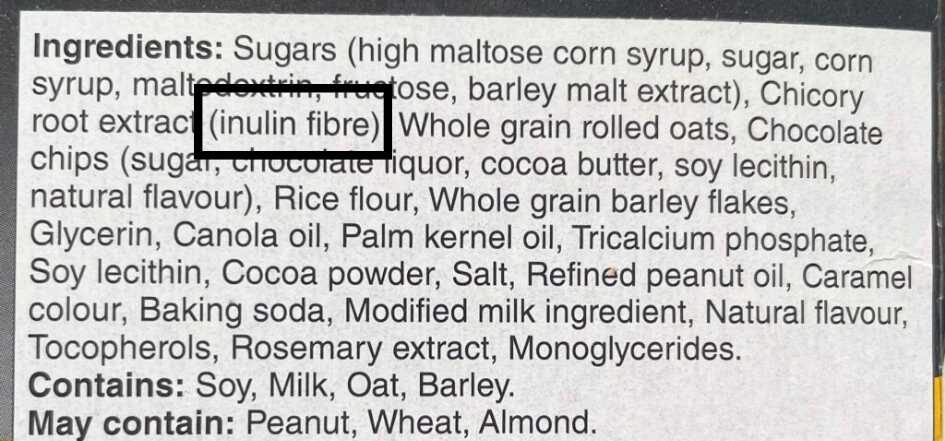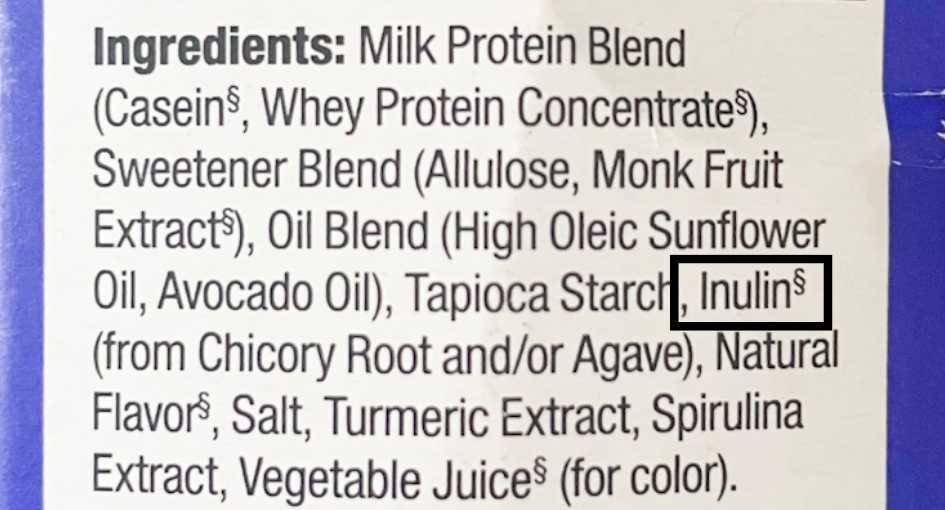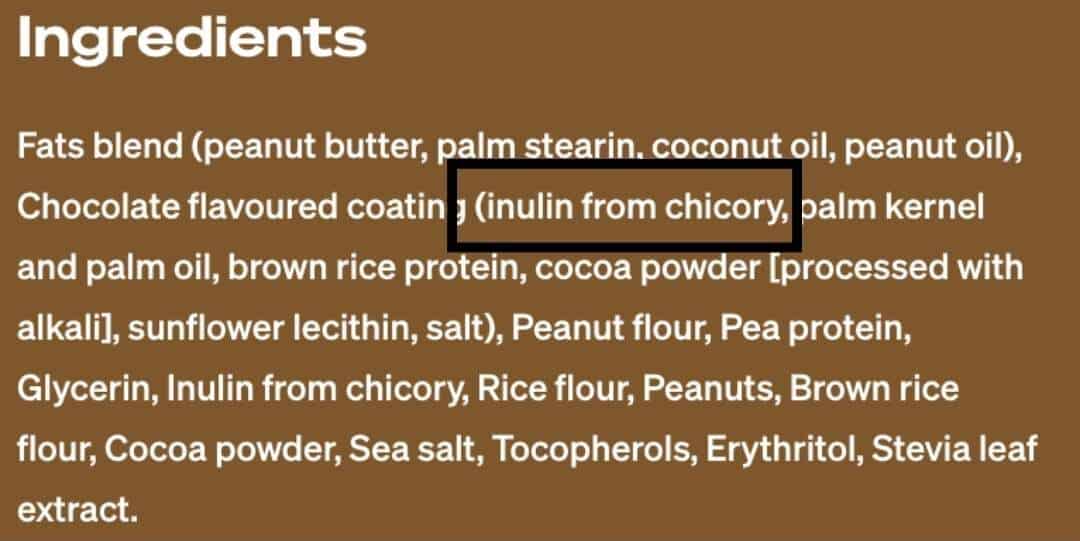You may have noticed this ingredient in your favourite granola bar or cereal and wondered – what is inulin, and is it good for me? As part of our Ingredient 101 series, we’re bringing you everything you need to know about this common food ingredient, including what inulin is, its common uses, and its health implications.
What is Inulin?
Inulin is a fructan, a type of polysaccharide. It is a prebiotic fiber, meaning it is indigestible in the small intestine. Inulin travels through our digestive tract to the large intestine and is fermented by gut bacteria (1, 4). Think of it as food for your gut.
Food sources of inulin include artichoke, onions, garlic, wheat, bananas, and chicory root. The most common sources of inulin used in the food industry are chicory root and Jerusalem artichoke (2).

What Types of Food Products Contain Inulin?
Inulin is considered a safe substance approved for use in the food industry in Canada and the U. S. Inulin is commonly used in packaged foods to boost the fiber content as it is flavorless and blends well into foods. You’ll find inulin in granola bars, fibre supplements, and cereal on the market.
How Does Inulin Affect Your Health?
Digestive Health
As a source of fiber, inulin has been researched for its potential effects on health and chronic disease. As a prebiotic fiber, inulin is fermented in the gut and can have a positive effect on the gut microbiome, specifically increasing the amount of bifidobacterium in our gut (5, 6). As such, it can help maintain a healthy digestive system and support overall health related to the benefits of a high-fiber diet (1).
Some studies show that inulin supplementation can improve symptoms of constipation by improving stool frequency and consistency (9). However, a recent review concluded that this has not been found consistently across studies, and more rigorous, high-quality research is needed to support the use of inulin for constipation (10).
Blood Sugar Control
Inulin may also have a favorable effect on blood sugars in people with diabetes (5). One systematic review and meta-analysis found an overall beneficial effect on A1C and fasting blood sugar in people with type 2 diabetes when 8-30g of inulin was supplemented daily. However, researchers noted limitations in the studies included in the review, such as small sample sizes (7).
Cholesterol Levels
Soluble fiber sources are well-known to have positive effects on blood cholesterol levels and the risk of cardiovascular disease. Inulin, like other sources of soluble fiber, is likely no exception. A systematic review and meta analysis looking at the effects of 8-30g of daily inulin supplementation found that inulin supplementation reduced total cholesterol, triglycerides, and LDL levels, and increased HDL levels (8).

Is Inulin Good for You? Bottomline
Is inulin good for you? The short answer is yes. Inulin is a prebiotic fiber that helps improve the gut microbiome and is beneficial for digestion, blood sugars, and cholesterol levels. However, most research looking at the health benefits of inulin uses large doses of inulin (up to 30g per day) which means that the small amount found in your granola or cereal may not be enough for therapeutic effect.
Related Posts:
- What Are Tocopherols? Ingredient 101
- Lecithin – Food Ingredient Review
- What are Natural Flavours and Should You Avoid Them?
Sources:
- Inulin Monograph, Health Canada, 2021.
- Steve Millam, in Potato Biology and Biotechnology, 2007, 30.4.3.2 Inulin.
- List of Dietary Fibres Reviewed and Approved by Health Canada’s Food Directorate, Health Canada, 2021.
- Deepak Mudgil, in Dietary Fiber for the Prevention of Cardiovascular Disease, 2017, 4.5 Inulin
- Wan X, Guo H, Liang Y, Zhou C, Liu Z, Li K, Niu F, Zhai X, Wang L. The physiological functions and pharmaceutical applications of inulin: A review. Carbohydr Polym. 2020 Oct 15;246:116589. doi: 10.1016/j.carbpol.2020.116589.
- Birkeland E, Gharagozlian S, Birkeland KI, Valeur J, Måge I, Rud I, Aas AM. Prebiotic effect of inulin-type fructans on faecal microbiota and short-chain fatty acids in type 2 diabetes: a randomised controlled trial. Eur J Nutr. 2020 Oct;59(7):3325-3338. doi: 10.1007/s00394-020-02282-5.
- Zhang W, Tang Y, Huang J, Yang Y, Yang Q, Hu H. Efficacy of inulin supplementation in improving insulin control, HbA1c and HOMA-IR in patients with type 2 diabetes: a systematic review and meta-analysis of randomized controlled trials. J Clin Biochem Nutr. 2020 May;66(3):176-183. doi: 10.3164/jcbn.19-103.
- Li L, Li P, Xu L. Assessing the effects of inulin-type fructan intake on body weight, blood glucose, and lipid profile: A systematic review and meta-analysis of randomized controlled trials. Food Sci Nutr. 2021 Jun 21;9(8):4598-4616. doi: 10.1002/fsn3.2403.
- Micka A, Siepelmeyer A, Holz A, Theis S, Schön C. Effect of consumption of chicory inulin on bowel function in healthy subjects with constipation: a randomized, double-blind, placebo-controlled trial. Int J Food Sci Nutr. 2017 Feb;68(1):82-89. doi: 10.1080/09637486.2016.1212819.
- Rao SSC, Brenner DM. Efficacy and Safety of Over-the-Counter Therapies for Chronic Constipation: An Updated Systematic Review. Am J Gastroenterol. 2021 Jun 1;116(6):1156-1181. doi: 10.14309/ajg.0000000000001222.


